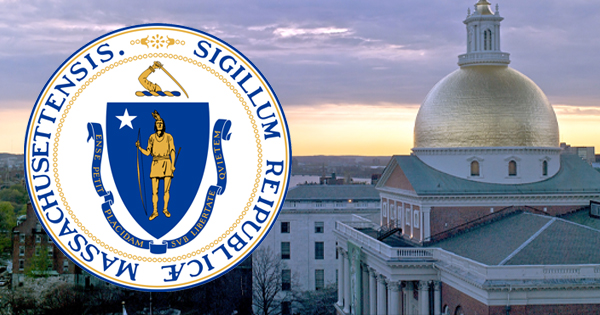
The below information was sourced from Senator Brendan Crighton’s monthly newsletter. From Senator Crighton:
With the goal of providing financial relief to families across the Commonwealth while making Massachusetts more competitive with other states, the Legislature overwhelmingly passed a bipartisan tax relief package supporting residents across all income levels last week. This legislation not only provides much-needed relief to working families but also encourages economic growth and investment in our communities. As our residents continue to face some of the highest costs of housing in the nation, we included targeted investments to lessen that burden and to make Massachusetts a more affordable place to live.
The compromise bill includes the following tax changes:

Child and Dependent Tax Credit
The bill increases the refundable tax credit for a dependent child, disabled adult, or senior from $180 to $310 per dependent in taxable year 2023, and then to $440 in taxable year 2024 and beyond, while eliminating the child/dependent cap. This expanded credit, which will benefit more than 565,000 families, will be the most generous universal child and dependent tax credit in the country.
Estate Tax
Massachusetts’ current estate tax, which has not been updated in many years, has become an outlier in several ways. The changes made in this bill update the tax to bring it more in line with other states and eliminate punitive elements of the tax for those with incomes just high enough to trigger it. The bill reduces the estate tax for all taxpayers and eliminates the tax for all estates under $2 million by allowing a uniform credit of $99,600.
Earned Income Tax Credit (EITC)
This bill increases the refundable Earned Income Tax Credit (EITC) from 30 per cent to 40 per cent of the federal credit. This increase will provide crucial support to working individuals and families, benefitting nearly 400,000 taxpayers with incomes under $60,000.
Senior Circuit Breaker Tax Credit
This bill doubles the refundable senior circuit breaker tax credit, which supports limited-income seniors facing high rents or real estate taxes, from $1,200 to $2,400. This change is expected to impact over 100,000 seniors across Massachusetts.
Rental Deduction Cap
This bill increases the rental deduction cap from $3,000 to $4,000. This is expected to impact about 800,000 Massachusetts taxpayers.
Housing Development Incentive Program (HDIP)
The bill increases the statewide cap from $10 million to $57 million for 2023, and subsequently to $30 million annually, which will provide Gateway Cities with an expanded tool to develop market rate housing. This increase is estimated to create 12,500 new homes in Gateway Cities and spur over $4 billion of private investment in these communities.
Low Income Housing Tax Credit
This bill raises the annual authorization from $40 million to $60 million. This increased authorization cap provides enough funding to spur the creation of thousands of new units of affordable housing annually while also bolstering economic development.
Local Option Property Tax Exemption for Affordable Housing
This new policy will permit municipalities to adopt a local property tax exemption for affordable real estate that is rented by a person whose income is less than a certain level set by the community.
Additional Tax Changes
Lead Paint Abatement: Doubles the credit to $3,000 for full abatement and $1,000 for partial abatement, to support families with older homes.
Student Loan Repayment Exemption: Ensures that employer student loan payments are not treated as taxable compensation.
Commuter Transit Benefits: Makes public transit fares, as well as ferry and regional transit passes and bike commuter expenses, eligible for the commuter expense tax deduction.
Apprenticeship Tax Credit Reforms: Expands the occupations for which this workforce development credit is available.
Senior Property Tax Volunteer Program: Increases from $1,500 to $2,000 the maximum that municipalities may allow for certain seniors to reduce from their property tax by participating in the senior work-off program.
Additional Reforms
In addition to tax relief, the bill updates Chapter 62F of the Massachusetts General Laws, which triggered nearly $3 billion in taxpayer refunds in 2022. This law requires that excess revenue be returned to taxpayers when tax revenue collections in a given fiscal year exceed an annual tax revenue cap. The bill passed today ensures that each credit is applied equally to every taxpayer.
The above information is courtesy of Senator Brendan Crighton and his monthly newsletter.
If you have a news story that you would like to share, please contact us via email or call 781-780-9460.

